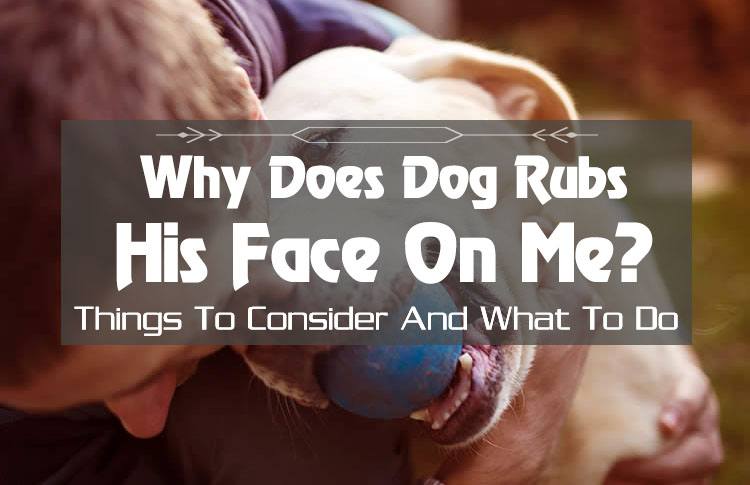Ever caught your dog snoozing with their tongue sticking out and wondered why do dogs sleep with their tongue out? Don’t worry — it’s usually nothing to be concerned about. In most cases, it’s a sign your pup is completely relaxed, comfortable, or simply cooling down after a long day of play. When a dog stick its tongue out during sleep, it is often a normal and cute behavior observed by many pet owners. Sometimes, though, it can hint at dental issues or other health concerns worth keeping an eye on.
In this article, we’ll explore the reasons behind this adorable habit, what it says about your dog’s well-being, and when it might be time to call your vet.
Key Takeaways
- Tongue out while sleeping is a common behavior in dogs, often indicating they are relaxed and comfortable in a deep state of slumber.
- Tongue protrusion can also be a method for dogs to regulate their body temperature, especially during hot weather or after exercise.
- While sticking out their tongue is usually harmless, it can sometimes signal underlying health issues, so monitoring is important.
Knowing Your Dog’s Sleeping Habits
Dogs, much like humans, have a wide range of sleeping habits that can reveal a lot about their overall health and personality. One of the most endearing—and sometimes puzzling—behaviors is when dogs stick their tongues out while sleeping. Many dogs display this quirky habit, and it can be linked to several reasons, from pure relaxation to subtle health issues. Observing your dog sleeping with its tongue sticking out can offer valuable insights into their comfort level, emotional state, and even potential medical concerns. The anatomy of a dog’s mouth, including the structure of the jaw and the placement of the tongue, can influence whether their tongue sticks out during sleep. By paying attention to these small details, pet owners can better understand their dog’s unique behavior and ensure their furry friend is happy and healthy. In this section, we’ll explore why so many dogs stick their tongues out during sleep and what it might mean for your pet.
Relaxation and Comfort
One of the most heartwarming sights for a dog owner is seeing their pup in a state of peaceful slumber, especially when their tongue is peeking out. This pet behavior often indicates that the dog sleeping is super relaxed and comfortable, as many owners have noticed. Seeing a dog sleep with its tongue out can also be a sign of a dog happy and content.
As dogs drift into deep sleep, their facial muscles, including those around the jaw, relax completely, which can cause their tongues to hang out. For dogs, this often results in just the tip of their tongue peeking out, similar to how our jaw might slacken during deep sleep.
The environment also plays a significant role. A cozy, safe space can help a dog relax more, leading to a deeper sleep where their jaw muscles and tongue follow suit. So next time you see your dog’s tongue out while they sleep, take it as a sign that they’re enjoying a calm and restful nap.
Temperature Regulation
Dogs have a unique way of keeping cool, especially during hot weather. Unlike humans, dogs don’t have sweat glands all over their bodies. Instead, they rely on panting and excessive panting to regulate their body temperature. When dogs pant, they evaporate moisture from their tongues, which helps cool the air around their bodies, especially when they are feeling hot.
This cooling mechanism is particularly important in warm conditions. By sticking their tongues out, dogs increase the surface area for evaporation, which helps them cool down more efficiently. Letting their tongue hang out, often called a “tongue hang,” is a natural way for dogs to cool off and is commonly seen when they are hot or relaxed. This is why you might notice your dog with its tongue hanging out more often when it’s hot or after vigorous exercise.
To keep your dog cool in hot weather, provide access to shade and fresh water. Additionally, a cool, well-ventilated sleeping area can greatly enhance their comfort.
Influence of Sleeping Positions
Have you ever observed your dog while it sleeps in different positions? You might notice how those positions can change the way their tongue looks. Dogs sleep in different sleeping positions, each influencing whether their tongues stick out or not.
Sleeping on their sides or backs relaxes a dog’s jaw muscles, often causing their tongues to hang out. In deeply relaxed dogs, the tongue naturally protrudes due to gravity and muscle relaxation.
The anatomy of a dog’s mouth and relaxed jaw muscles contribute to this phenomenon. So, when you see your dog on its back with its tongue out, it’s a sign of their blissful relaxation.
Breed-Specific Traits
Certain breeds, especially brachycephalic breeds, are more prone to sleeping with their tongues out. These breeds include:
- Pugs
- Bulldogs
- Boxers
- Shih Tzus
These breeds are also more likely to sleep with their mouths open, which can lead to their tongues sticking out.
Their short snouts and unique skull shapes often cause their tongues to hang out when they relax, particularly during sleep, as their tongues don’t fit as neatly into their mouths as those of human breeds with longer snouts.
Toy breeds and other animals may also exhibit this behavior due to small mouth sizes or other anatomical factors, adding to the common reasons and surprising reasons for the unique quirks of each breed.
Instincts and Behavior
Dogs are guided by a mix of instincts and learned behaviors, and these play a big role in how they sleep. One of the primary reasons dogs stick their tongues out while sleeping is to help regulate their body temperature. Unlike humans, dogs don’t have sweat glands all over their bodies, so they rely on panting and tongue sticking to cool themselves down, especially in hot weather or after a burst of activity. This instinctive behavior is particularly noticeable in certain breeds, such as brachycephalic breeds with short snouts, who may be more prone to tongue hanging due to their unique anatomy and potential breathing challenges.
But it’s not just about staying cool—tongue sticking can also be a sign that your dog is completely relaxed. Many dogs will let just the tip of their tongue peek out when they’re in a deep, peaceful slumber, signaling that they feel safe and calm. This small detail can be a reassuring sign for pet owners that their dog is content and comfortable.
Dogs also display a behavior called the flehmen response, where they use their tongue and mouth to taste the air. This helps them detect scents and pheromones in their environment that they can’t perceive through sniffing alone, allowing them to gather important information about their surroundings.
However, it’s important to keep an eye out for any unusual behavior. If you notice your dog sticking its tongue out excessively, showing signs of discomfort, excessive panting, difficulty eating, or other symptoms, it could point to dental problems, nerve damage, or other health issues. In these cases, seeking veterinary advice is always the best course of action to ensure your dog’s well-being.
By understanding the instincts and behaviors behind tongue sticking, pet owners can better support their dogs’ health and happiness. Providing a cool, comfortable sleeping environment and monitoring for any changes in behavior will help your dog enjoy restful, healthy sleep. If you ever have concerns, don’t hesitate to seek veterinary advice—your dog’s peaceful slumber is worth it.
Communication and Mood
Dogs are masters of nonverbal communication, and their tongues play a surprisingly important role in expressing how they feel. When a dog sticks its tongue out, it’s often more than just a quirky habit—it can be a sign of relaxation, happiness, or even a subtle way to communicate with their human family. For example, a relaxed dog might let its tongue hang out just a bit while lounging or sleeping, signaling contentment and a sense of security. This is especially true if you notice other signs of relaxation, like a loose body, soft eyes, and a gently wagging tail.
On the flip side, dogs may also stick their tongues out when they’re feeling anxious or stressed. In these cases, you might see additional body language cues such as panting, pacing, or trembling. The context is key: a dog sticking its tongue out while playing or cuddling is likely showing joy, while tongue sticking paired with restlessness could indicate discomfort.
Certain breeds, especially those prone to tongue hang due to their facial structure, like Pugs and Bulldogs, may have their tongues out more often. But regardless of breed, a dog’s tongue can be a window into their mood. Sometimes, dogs use their tongues to seek attention or affection, gently licking their owner’s hand or face as a sign of trust and love.
By tuning into your dog’s body language and the way they use their tongue, you can better understand what they’re feeling—whether it’s pure relaxation, excitement, or a need for comfort. This awareness helps you respond to your dog’s needs and strengthens the special bond you share.
Health Concerns to Watch For
While a dog’s tongue sticking out during sleep is often harmless, it can sometimes indicate underlying health issues. Dental problems, such as gum disease or loose teeth, are common dental issues that can cause discomfort, leading dogs to sleep with their tongues out to avoid pain. Regular dental check-ups are important to prevent or address these dental issues and maintain your dog’s overall well-being.
Hanging tongue syndrome, where dogs can’t retract their tongues due to nerve damage or other injuries, is another condition to watch for. Neurological issues can also affect tongue control, causing persistent protrusion.
Frequent tongue protrusion, especially if unusual, should prompt monitoring for other signs of discomfort or health issues. Regular dental check-ups and veterinary visits help ensure your dog’s health and comfort.
Dreaming and REM Sleep
Dogs, like humans, experience different stages of sleep, including the rapid eye movement (REM) stage. During REM sleep, dogs are most likely to dream, and this is often when you might see their tongues sticking out. Some dogs may even be sticking their tongue out as a sign of relaxation or comfort while they sleep. This behavior is not a cause for concern. It’s simply a part of their natural sleep cycle.
In REM sleep, dogs may also twitch, move their paws, and change breathing patterns. Seeing your dog’s tongue out while they dream is just another sign of their active dream life.
Impact of Age and Dental Health
Aging dogs often experience dental health issues that impact whether they sleep with their tongues out. The underlying cause of poor dental hygiene can lead to discomfort, resulting in open mouths and protruding tongues during sleep. Dental health problems may also cause dogs to sleep with their mouth open, as they try to relieve discomfort or pain.
Issues like periodontal disease can cause pain and lead to abnormal sleeping positions. Addressing dental problems early prevents discomfort, ensuring restful sleep for your dog.
Differentiating Normal from Abnormal Behavior
Dog owners should differentiate between normal and abnormal tongue protrusion during sleep. Slight tongue protrusion is typically normal and due to relaxation, and dogs sticking their tongues out during sleep is a common and normal behavior. However, excessive or persistent sticking can indicate health issues like respiratory distress, dental problems, or heat stress.
Identifying normal versus abnormal behavior helps you better understand your dog’s healthy health. Always monitor their body language and any changes in unusual behavior.
Dog-Owner Relationship
The connection between a dog and its owner is built on understanding and trust, and paying attention to your dog’s tongue can be a valuable part of that relationship. When you notice your dog sticking its tongue out, it’s not just a cute quirk—it can be a sign of how your pet is feeling or a clue to their overall well-being.
By observing your dog’s body language, including when their tongue is out, you can pick up on signs of happiness, stress, or even potential health issues. For instance, if your dog is sticking its tongue out because they’re feeling hot, you can help by providing a cool, shaded spot and plenty of water. If you notice your dog’s tongue out along with other signs of anxiety, offering gentle reassurance and a calm environment can make a big difference.
Sometimes, persistent tongue sticking can be a sign of dental issues or other health concerns. Being attentive to these changes and seeking veterinary advice when needed shows your commitment to your pet’s health and happiness. Addressing concerns early can prevent discomfort and ensure your dog enjoys a peaceful slumber.
Ultimately, tuning in to your dog’s tongue and overall behavior helps you respond to their needs with empathy and care. This not only supports your dog’s health but also deepens the bond you share, making your relationship even more rewarding. Whether your dog’s tongue is out in a moment of joy or as a sign of something more serious, your attention and love are the best ways to keep them happy and healthy.
Ensuring Your Dog’s Comfort During Sleep
A comfortable sleeping environment is crucial for your dog’s well-being. Important factors include the primary reasons for a calming bedtime routine to help them relax and sleep peacefully. Most dogs keep their tongue inside their mouth during sleep unless they are especially relaxed or have a health issue. Keeping the area clean and allergen-free to contribute to better sleep. Tailoring the sleeping arrangement to their personality and health needs, which makes a significant difference.
A designated sleeping space helps dogs feel secure and promotes restful sleep. Placing a comfortable bed in a quiet, cozy corner of your home can greatly improve your dog sleeps quality.
When to Seek Veterinary Advice
Monitoring behavioral changes, especially tongue protrusion during sleep, is crucial. If your dog suddenly starts sleeping with their tongue out or if this behavior is new, consulting a veterinarian is advisable. If a dog sticks its tongue out persistently during sleep, it may be a sign to consult a veterinarian, as this could indicate an underlying health issue.
Signs warranting veterinary attention include a dry or cracked tongue, excessive drooling, or difficulty eating. Unusual tongue behavior, especially with signs of pain or distress, should prompt a vet visit. Symptoms should not be overlooked.
Regular veterinary check-ups are crucial for maintaining your dog’s health and comfort during sleep. If you are worried about your pets, seek veterinary advice if you are concerned about any concerns.
Summary
Dogs sleeping with their tongues out might look funny or adorable, but it often tells a story about their comfort, relaxation, or even how they regulate body temperature. In most cases, it’s perfectly normal — just another quirk that makes your furry friend unique. Still, paying attention to changes in this behavior can help you catch early signs of dental or health issues before they become a problem.
Understanding why dogs sleep with their tongue out helps you better care for them and appreciate the little ways they communicate comfort and trust.
Want to learn more about your dog’s quirks and other fascinating behaviors? Explore our complete collection of dog behavior and health guides to keep your pup happy, healthy, and well-rested.
Frequently Asked Questions
Does breed affect whether a dog sleeps with its tongue out?
Absolutely, breed does play a role; brachycephalic breeds like Bulldogs and Pugs are more likely to sleep with their tongues out because of their unique facial structure. So, if you have one of these breeds, it’s pretty normal to see that adorable sight!
Should I be concerned if my dog’s tongue is always out while sleeping?
It’s worth being concerned if your dog’s tongue is always out while sleeping, as it could point to dental or neurological issues. A visit to the vet will help you get to the bottom of it.
How can I ensure my dog is comfortable during sleep?
To ensure your dog is comfortable during sleep, establish a calming bedtime routine and provide them with a clean, designated sleeping area. This will help them feel secure and relaxed, promoting better rest.
Can dogs sleep with their tongues out and still be healthy?
Yes, many dogs sleep with their tongues out as a normal part of relaxation and temperature regulation. It is usually not a cause for concern unless accompanied by other signs of discomfort or unusual behavior.
What should I do if my dog’s tongue is dry or cracked while sleeping?
If you notice your dog’s tongue is dry or cracked during sleep, it could indicate dehydration or an underlying health issue. Ensure they have access to fresh water and consult your veterinarian for a thorough examination if the condition persists.




